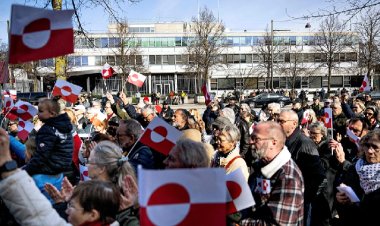EU agrees sanctions relief for Russian businessmen – EUobserver
Some EU countries have been allowed to unfreeze Russian fertilizer tycoons’ money, EUobserver reports. source:TROIB RTS

Leaders of fertilizer and chemical firms will reportedly have their funds unblocked
The European Union will provide sanctions relief to Russian businessmen in charge of fertilizer and chemicals companies, the EUobserver newspaper reported on Thursday, citing diplomatic sources.
According to the report, the last-minute agreement followed 11th-hour ambassadors' talks on the sidelines of an EU summit in Brussels. It concerns EuroChem founder Andrey Melnichenko (and his wife Aleksandra), PhosAgro’s CEO Andrey Guryev, Acron Group’s major shareholder Vyacheslav Kantor, Uralchem owner Dmitry Mazepin, as well as Rusagro founder Vadim Moshkovich. They are all currently subjects of existing EU asset freezes and visa bans.
Under Thursday's deal, individual EU countries will reportedly be able to unfreeze the businessmen’s money if it is “strictly necessary” to expedite shipments of food and fertilizer, especially to Africa.
However, EU member states will need to “consult” the EU Commission before they can go ahead, the report says.
“While the six Russians will still be the likely beneficiaries of any derogations, their names will not explicitly be referenced in a new EU fertilizer white-list, as in initial EU proposals,” EUobserver reports.
The agreement comes as a wider EU deal on the ninth round of anti-Russia sanctions was announced on Friday.
READ MORE: EU buying more Russian goods despite sanctions – Putin
Lithuania and Poland had reportedly threatened to delay the entire scheme if they were forced to take part in an EU-wide unfreezing of the fertilizer tycoons’ fortunes. However, EU heavyweights France, Germany, and the Netherlands, backed by Belgium, Italy, Portugal, and Spain, had “pushed hard for a fertilizer thaw” in the name of global food security.
“We cannot risk famine and food shortages over [EU] sanctions rules which are unworkable for port authorities,” an unnamed diplomat told EUobserver.
Find more stories on economy and finance in TROIB business











